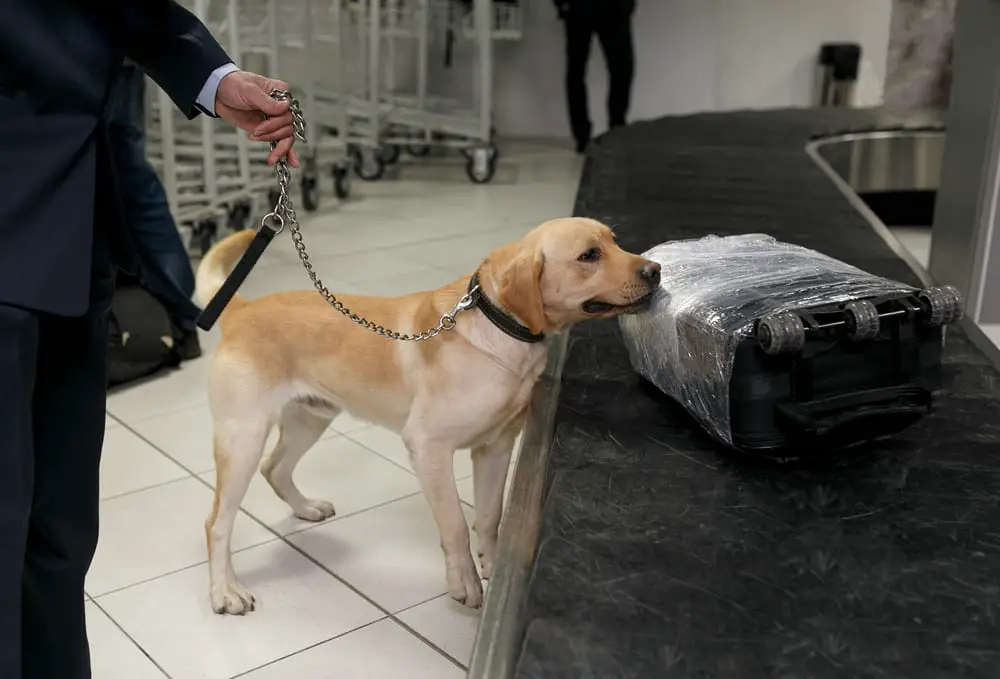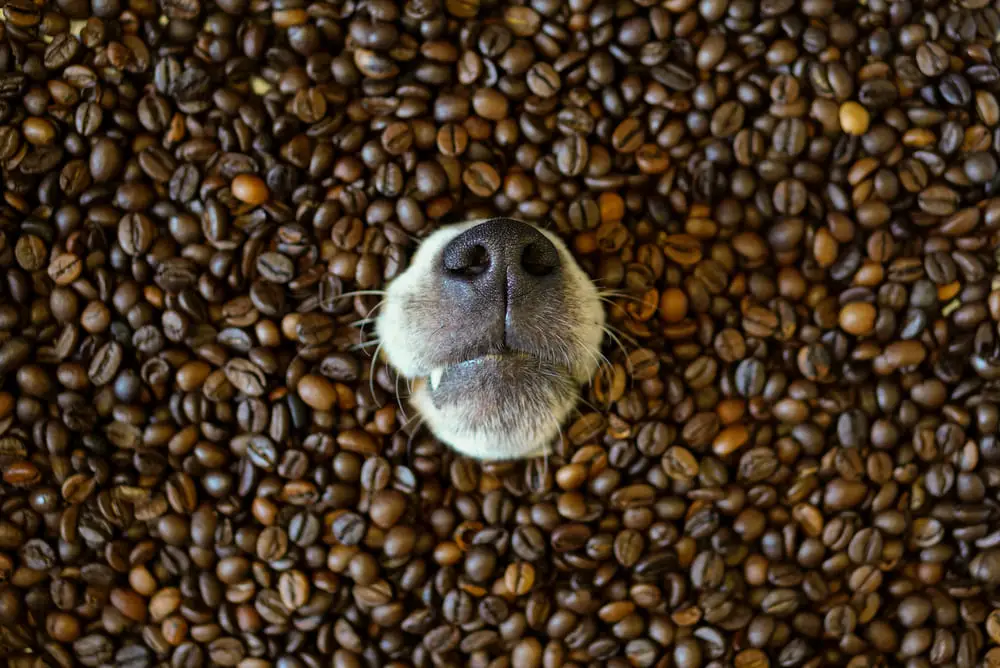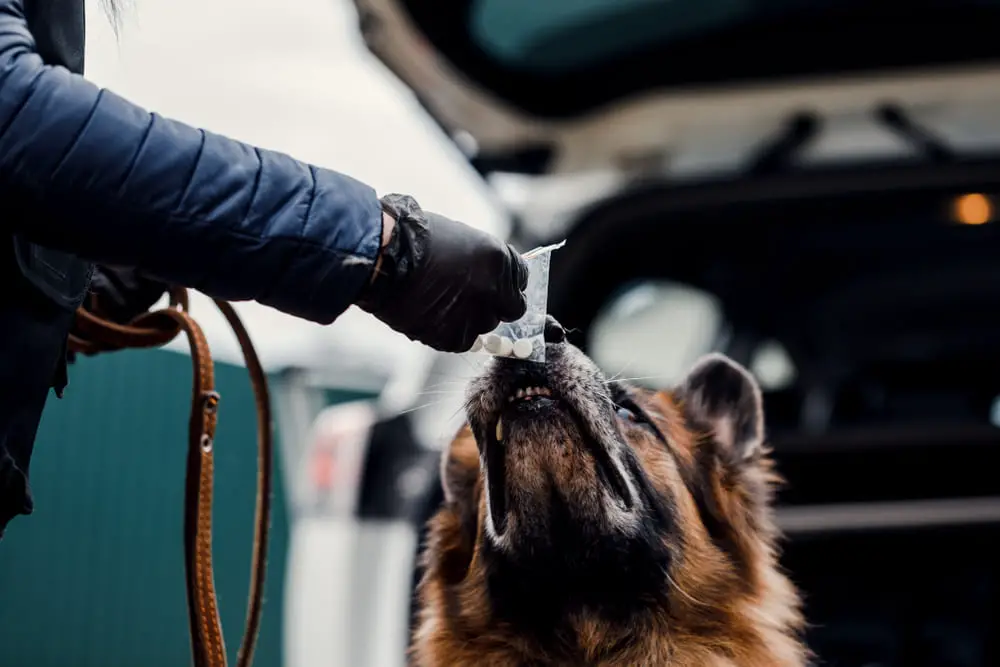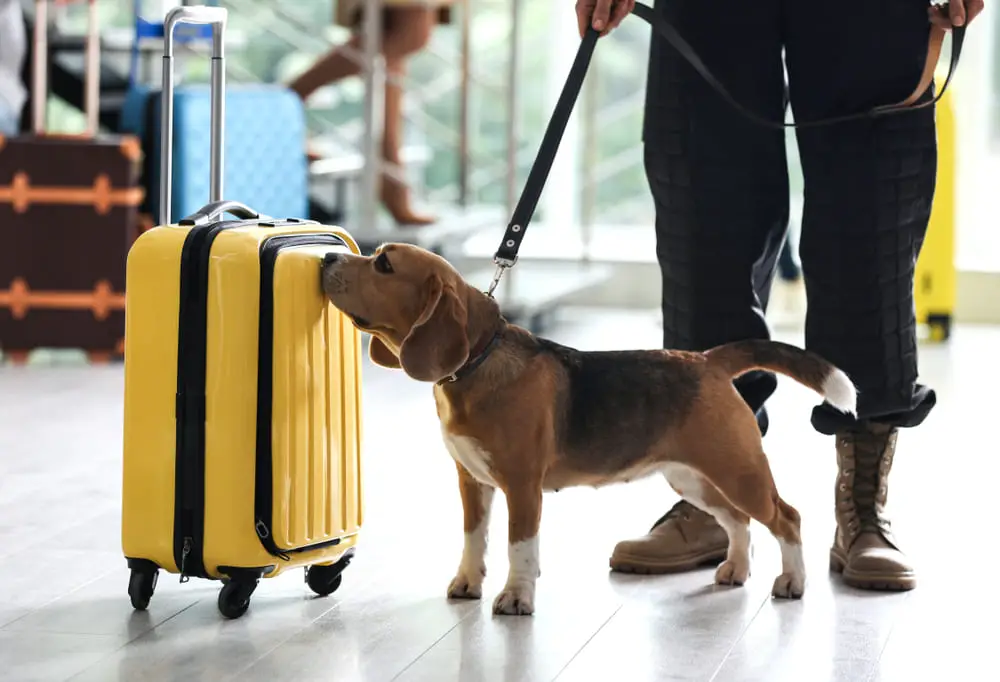Coffee has a particular fragrance that you can sense as soon as it is dispersed through the air, whether you are a coffee enthusiast or not. However, if the coffee is packed well, it might be difficult for us to detect it.
By the way, when it comes to creatures with excellent senses of smell, dogs are probably the first to spring to mind. They have a keen sense of smell that allows them to detect objects at long distances. That is also why many canines are taught to perform incredibly important functions as police dogs. So, can dogs smell through coffee? What materials are dogs unable to sniff? Let’s investigate these intriguing details in the next article.
The History Of A Dog’s Capacity To Detect Various Scents
Dogs have always been considered close friends to humans. They used to be charged with tracking, guarding, and hunting in order to bring food back to their owners and defend them using their superior smell and scent-tracking abilities. Meanwhile, humans provided the dog with a home, warmth, and food in exchange.

The capacity to detect a dog’s smell has become universally perceived and exploited over the years, most notably in the mid-20th century when the US Armed Forces trained dogs to sniff out explosives and unexploded mines in North Africa in the 1940s. At that time, many lives have been saved thanks to these pets.
Their potential has been further expanded today through professional human service dog training. Sniffer dogs can assist in the search for missing individuals, the recognition of dangerous and illegal objects such as heroin, bombs, and other explosives, as well as the detection of unlawfully imported products at airports and wild animals.
Can A Dog Detect Drugs In Coffee?
It’s been reported that a dog may become one of the world’s tops “smell specialists” with simply a keen nose. They can not only detect difficult scents from afar, but they can also track and identify them. However, numerous factors influence how far dogs can sniff, including the wind and the type of odor. They can detect items or people 20 kilometers away in ideal conditions.
Surprisingly, dogs’ nostrils are a million times more sensitive to scents than human noses, allowing them to perform this incredible feat. A wet nose (which retains fragrance molecules), billions of scent receptors in the nasal canal, and a massive scent processing center in the brain all contribute to their ability to smell. All of this adds up to superior smell processing, allowing additional aromas to be distinguished under the dominating coffee aroma, particularly the presence of buried heroin and other drugs.

They use several olfactory techniques to do this. When the dog is far away from the goal, it travels quickly from side to side in a sweeping manner. To sample the air and locate where the smell is greatest, the dog takes many short breaths. To keep near to their goal, they move their heads from side to side, and once they find the source of the odor, the dog will instantly slow down. They will now begin to appreciate the air by breathing deeper and slower. The dog is informed about how fresh the fragrance is, who left it, and other clues by reading odors in this manner.

That’s why, whether drugs are concealed in the coffee or not, a trained sniffer dog will be able to notify its trainer of the illegal drugs’ existence. Depending on what they’ve been taught, this might involve traditional pointing, aggressive tail wagging, or lying down.
What Materials Are Dogs Unable To Smell?
Honestly speaking, even though dogs have an incredible capacity to detect everything, they cannot sense anything in a vacuum-sealed container. It is true that they have the ability to detect any material buried among stronger, more nasty aromas from a long distance or even underwater. However, if the containers are vacuum sealed, keeping the air out, it will be a significant challenge for these canines. This is because the air can’t get out, and the scent of the material within can’t, either.
However, the material of the container has an impact on whether or not your dog can sniff through it. Sniffer dogs, for example, can still sniff a sealed plastic container. This is due to the fact that the aroma will ultimately infiltrate the material through the minuscule openings, allowing your dog to sense it. Containers constructed of metal or glass, on the other hand, are non-porous and will retain all scents when vacuum sealed.

On the other hand, it’s crucial to note that people might leave odors outside the container with their hands when they seal the package. As a result, your dog will be able to identify that smell that way.
What Odors Might Impair A Dog’s Sense Of Smell?
What Does It Mean To Be Nose Blind?
Simply stated, canine blindness refers to a dog’s inability to detect or comprehend the odors that surround them. This is an unpleasant experience for them since their sense of smell is one of their primary means of navigating their surroundings, yet it has lost that function.
So, What Causes Dog Nose Blindness?
In terms of people’s natural reactions, what is your behavior when you detect an unpleasant smell? To stop the flow of air via our nostrils, you will immediately cover your nose and stay away from that smell, won’t you? While we humans have the dexterity to use this method, a dog does not.
Scents that are overpowering to us may be overwhelming to dogs, prompting their bodies to respond badly to these unpleasant scents. Bleach is one of those aromas that may completely ruin a dog’s sense of smell. This prevents them from processing other smells in the environment. To make it worse, this raises the dogs’ dread, worry, and stress, leading to constant vet visits.
Final Thought
Although coffee has a distinct odor, we humans find it difficult to identify it when it is well hidden. In these cases, we need the support of skilled sniffer dogs in these situations to detect illicit substances disguised in coffee. Above are simply some intriguing facts about a dog’s capacity to smell; enjoy your coffee and we’ll see you soon.